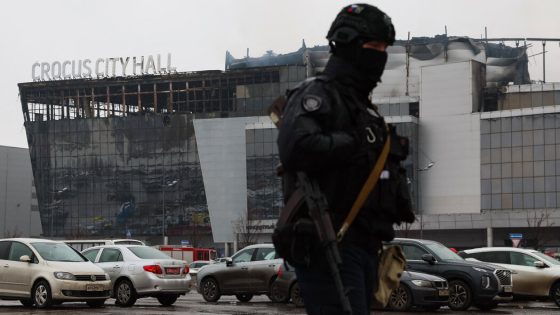The group that claimed credit for the deadly terrorist attack in Moscow on Friday is the Islamic State affiliate in Afghanistan called Islamic State Khorasan Province, or ISIS-K.
ISIS-K was founded in 2015 by disaffected members of the Pakistani Taliban, who then embraced a more violent version of Islam. The group saw its ranks cut roughly in half, to about 1,500 to 2,000 fighters, by 2021 from a combination of American airstrikes and Afghan commando raids that killed many of its leaders.
The group got a dramatic second wind soon after the Taliban toppled the Afghan government that year. During the U.S. military withdrawal from the country, ISIS-K carried out a suicide bombing at the international airport in Kabul in August 2021 that killed 13 U.S. troops and as many as 170 civilians.
The attack raised ISIS-K’s international profile, positioning it as a major threat to the Taliban’s ability to govern.
Since then, the Taliban have been fighting pitched battles against ISIS-K in Afghanistan. So far, the Taliban’s security services have prevented the group from seizing territory or recruiting large numbers of former Taliban fighters bored in peacetime — among the worst-case scenarios laid out after Afghanistan’s Western-backed government collapsed.
President Biden and his top commanders have said the United States would carry out “over-the-horizon” strikes from a base in the Persian Gulf against ISIS and Qaeda insurgents who threaten the United States and its interests overseas.
Indeed, Gen. Michael E. Kurilla, the head of the military’s Central Command, told a House committee on Thursday that ISIS-K “retains the capability and the will to attack U.S. and Western interests abroad in as little as six months with little to no warning.”
ISIS is clearly seeking to project its external operations well beyond its home turf. Counterterrorism officials in Europe say that in recent months they have snuffed out several nascent ISIS-K plots to attack targets there.
In a post on its official Telegram account in January, ISIS-K said it was behind a bombing attack that killed 84 people in Kerman, Iran, during a memorial procession for Maj. Gen. Qassim Suleimani, a revered Iranian commander who was killed in an American drone strike in 2020.
ISIS-K, which has repeatedly threatened Iran over what it says is its polytheism and apostasy, has claimed responsibility for several previous attacks there.
And now the group has claimed responsibility for the attack in Moscow.
“ISIS-K has been fixated on Russia for the past two years” and frequently criticizes President Vladimir V. Putin in its propaganda, said Colin P. Clarke, a counterterrorism analyst at the Soufan Group, a security consulting firm based in New York. “ISIS-K accuses the Kremlin of having Muslim blood in its hands, referencing Moscow’s interventions in Afghanistan, Chechnya and Syria.”
Source Agencies


